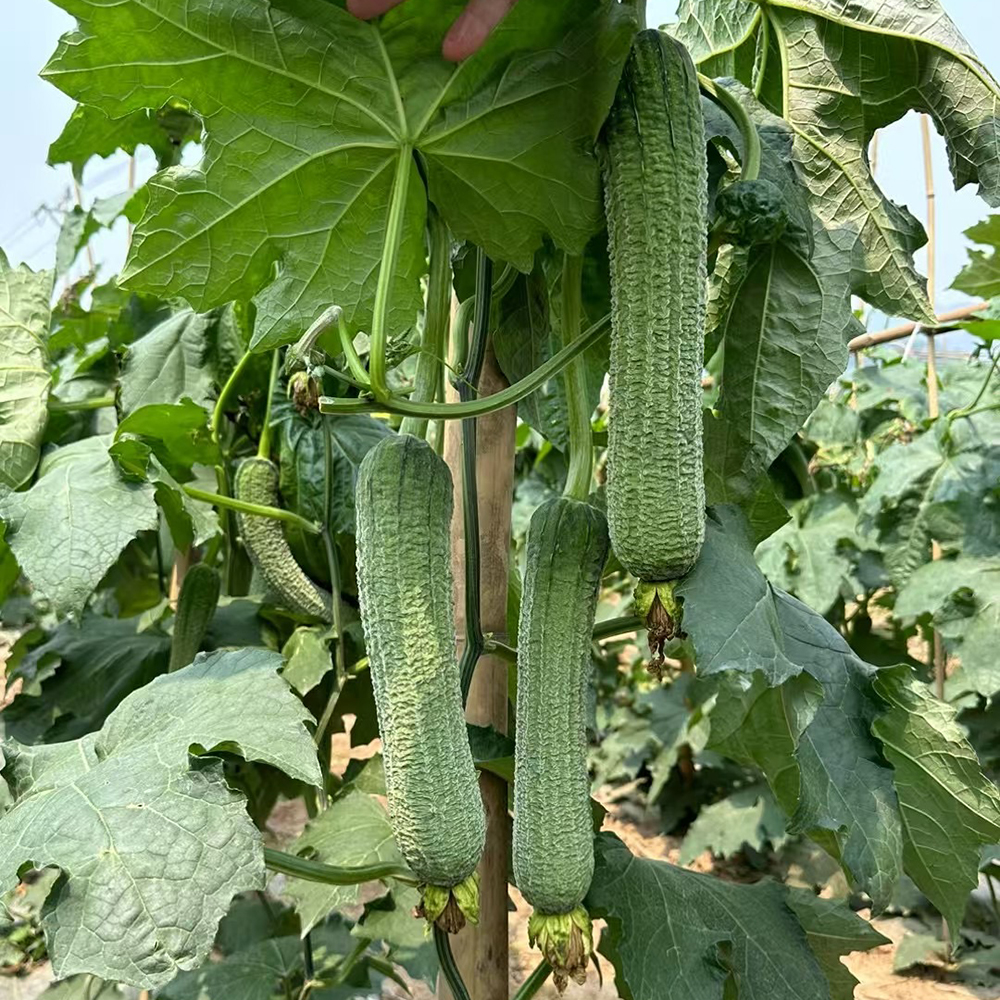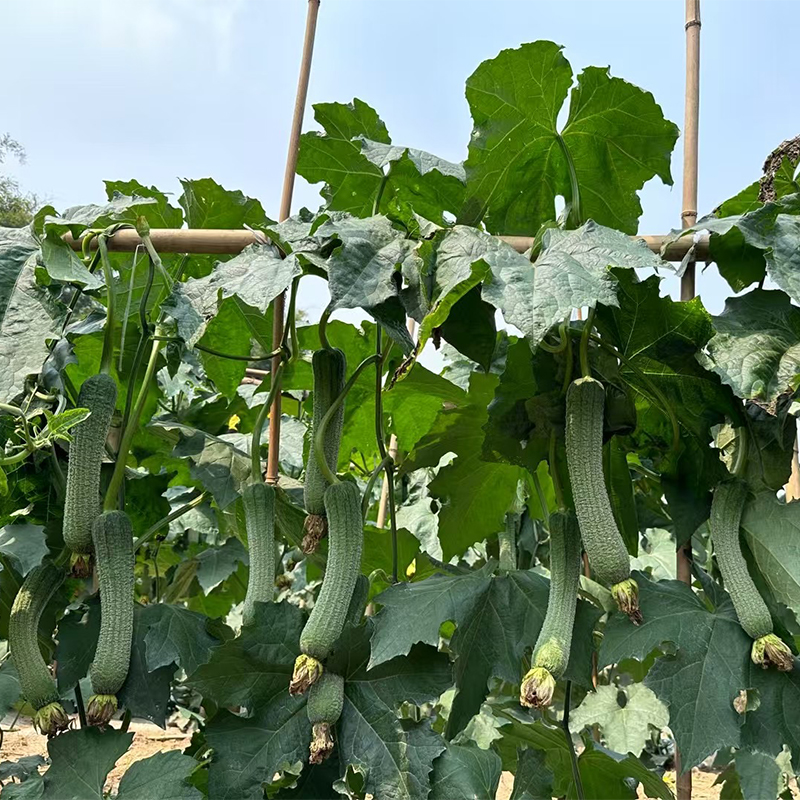Chunqiu1 Luffa Seed F1
This variety features vigorous plant growth and strong branching ability.
Description
Description
This variety features vigorous plant growth and strong branching ability.
First female flower node position:
- Spring planting: at nodes 9–12.
- Autumn planting: at nodes 18–19.
Fruit Characteristics:
Cylindrical and straight fruit with green skin and horizontal ridges.
Spring crop:
- Fruit length: approx. 36 cm.
- Diameter: approx. 5.8 cm.
- Average weight: 450–500 g per fruit.
Autumn crop:
- Fewer deformed fruits.
- Fruit length: approx. 30 cm.
- Diameter: approx. 6.5 cm.
- Average weight: 460–530 g per fruit.
The fruits are firm with excellent marketability, suitable for both fresh market and transport. Ideal for spring and autumn cultivation in open fields and protected environments.
Cultivation Guidelines:
- Recommended planting density: 1,400 plants per mu (approx. 21,000 plants/ha).
- Spacing: 100 cm between rows × 50 cm between plants; single-plant transplanting.
- Timely trellising and vine training are essential.
- Remove 2–3 immature fruits consecutively to promote fruit set and enhance fruit-bearing continuity.
- During early low-temperature periods, apply plant growth regulators or manually pollinate using male flowers; remove lateral branches and retain the main stem to improve early fruit set.
Adaptation Areas:
- Well-suited for cultivation in Chongqing and the middle to lower reaches of the Yangtze River.
- Spring sowing: January 21 to February 20 in heated seedbeds; transplant to greenhouse in late February or to mulched fields in early to mid-March.
- Autumn sowing: Use shade nets for seedling production; sow from June 20 to 30.
- For other regions with similar climate and ecological conditions, trial planting is recommended before large-scale cultivation.
Additional information
Additional information
| Crop Type: | Luffa |
|---|---|
| Seed Type: | F1 |


